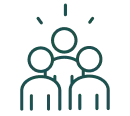The apostrophe is a unique feature of the Italian language. When used properly, it will help you write Italian like a native. This comprehensive guide explains when to use the Italian apostrophe (l’apostrofo) and when not to.
Definite articles (gli articoli determinativi)
We use the apostrophe in front of singular nouns (both masculine and feminine) starting with a vowel (a, e, i, o, u) or the constant “h”.
We never use the apostrophe before plural names, even though they start with a vowel.
- L’amico
- L’erba
- L’isola
- L’orso
- L’uomo
- L’hotel
- Gli amici
- Le erbe
- Le isole
- Gli orsi
- Gli uomini
- Gli hotel
Indefinite articles (gli articoli indeterminativi)
- Un’amica
- Un’esperienza
- Un’emozione
We never use the apostrophe when “un” precedes a masculine noun
We use the apostrophe with the indefinite articles (articoli indeterminativi) only when “un” precedes a feminine noun.
- Un uomo
- Un albero
- Un uccello
Pronouns
We use the apostrophe when the direct pronouns “lo” and “la” proceed a verb starting with a vowel or the constant “h”.
We never uses the apostrophe with plural pronouns.
For example,
- L’uso – I use it
- L’ho visto – I saw him
- Li uso – I use them
- Li ho visti – I saw them
We never use the apostrophe with indirect pronouns.
- Gli ho detto – I told him
- Le ho detto – I told her

Test Your Italian
Not sure what your Italian level is? I’ve created a free online Italian test to help you determine it.Interrogatives
The interrogative words such as Come?, Quando?, Cosa? Dove? Drop the last vowel when they are followed by the various forms of the verbs essere and avere.
- Dov’è? – Where’s it?
- Dov’era? – Where was it?
- Quand’è? – When is it?
- Com’è? – How’s it?
- Cos’hai? – What do you have?
The interrogative phrase Qual è? doesn’t use the apostrophe.
Quello and bello
Quello and bello drop the “o” and become “quell” and “bell” when they precede singular nouns starting with a vowel.
- Quell’albero
- Quell’uomo
- Bell’albero
- Bell’uomo
The words buon (from buono) and nessun (from nessuno) don’t use the apostrophe though.
Imperatives
The shortened versions of some imperative forms use the apostrophe, such as
- Va’ – go!
- Di’ – tell!
- Da’ – give!
- Sta’ – stay
The apostrophe is not used when they are combined with pronouns.
For example,
- Dimmi – tell me
- Dammi – give me








